Jerome Bonaparte. "Merry King Yerem"
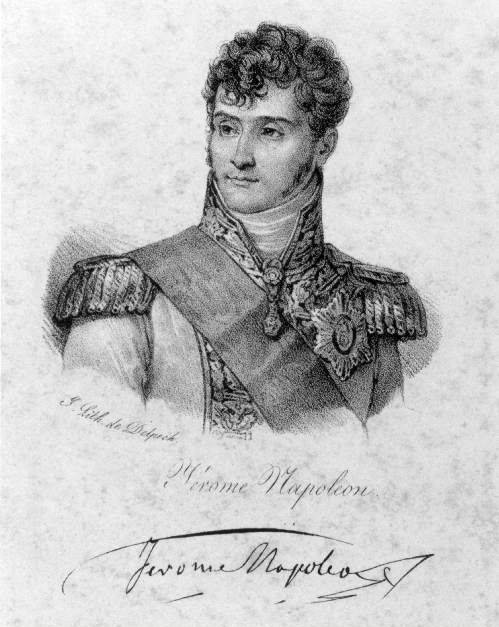
Jerome Napoleon Bonaparte
The hero of our article today, Jerome Bonaparte (Girolamo Buonaparte), was the youngest child in the family. He was born on November 15, 1784 on the island of Corsica - in Ajaccio. His brother Napoleon, who was 15 years older than Jerome, was already completing his studies at the Paris Military School at that time. On February 24, 1785, the father of the family, Carlo Maria Buonaparte, died.
When Jerome was 9 years old, Napoleon distinguished himself during the siege of Toulon and received the rank of brigadier general. After the suppression of the royalist rebellion in Paris (13 Vendemière, 1795), he became a divisional general, and already on March 2, 1796, he was appointed commander of the Italian army. Napoleon's success had a very beneficial effect on the fate of his younger brother, who was appointed to study at the military college of Juilli.
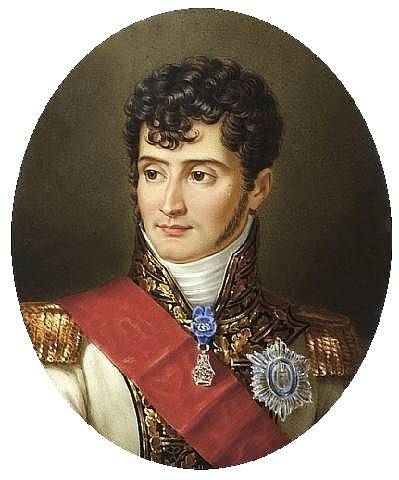
Jérôme Bonaparte in a portrait by Sophie Lienard
Naval service of Jérôme Bonaparte
After the coup d'état of 18–19 Brumaire in the 9th year of the Republic (November 10–1799, 1800), Napoleon became First Consul. In November 2, he sent Jerome to the navy, intending to eventually make him an admiral. Jerome began his service as a lieutenant (postgraduate student of the XNUMXnd class).
He took part in an unsuccessful expedition to the island of Elba, then in 1801 he was assigned to one of the ships of the French squadron, with which the 21th corps of General Leclerc, the husband of Pauline Bonaparte, went to the island of Haiti. On the western part of this island was the important French colony of Saint-Domingue, which was called the "Pearl of the Antilles", it gave France a third of the profits from all exports of colonial goods. In 1789, 86 thousand tons of sugar were produced here (about 40% of the total world production). But on August 22, 1791, Negro slaves rebelled in Saint-Domingue: in 2 months, 280 plantations were destroyed and about two thousand whites were killed, including many women and children.
Leclerc's expedition ended in disaster, and the reason for this was the yellow fever epidemic: according to various sources, from 330 to 700 people returned to their homeland. Then Leclerc also died. But Napoleon's relatives were lucky. His sister Pauline returned safely to France. And brother Jerome, even before the start of the epidemic in 1802, was sent on the brig "L'Epervier" with a report to Napoleon.
True, his ship, having encountered superior British forces at sea, was forced to take refuge in the port of the American city of Baltimore, but Jerome did not have to be upset about this. The first consul of France was very popular in the United States, and his brother received the warmest welcome here. In 1803, he even married Elizabeth Patterson, the daughter of a local merchant.
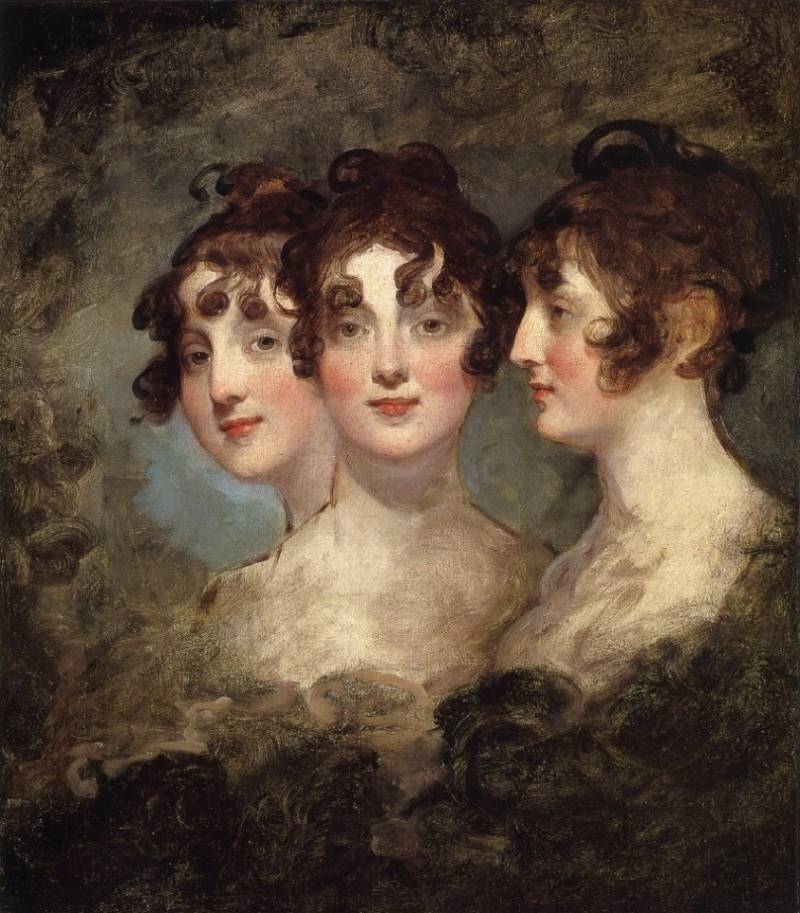
Gilbert Stuart. Triple portrait of Elizabeth Patterson Bonaparte, 1804
In America, everything suited Jerome and, probably, if it were his will, he would forever remain in this country. However, Napoleon, now emperor, demanded that he return to France. Standing at the head of his clan, this Corsican did not doubt his right to decide the fate of family members, however, the rewards for obedience were very great.
Jérôme returned to France in 1805 with his pregnant wife. However, Elizabeth was not even allowed to go ashore, she gave birth to her son in London and, having learned that her marriage to the emperor's brother was annulled, returned to her parents. Napoleon gave Jerome the title of prince and ordered him to return to the fleet - he still did not lose hope of making him a French naval commander.
On June 2, 1805, Jerome was given command of a frigate, already on July 7 he became the head of the Genoese port, on November 1 he raised his flag on a ship of the line. In 1806 we see him at the head of a squadron of 8 ships. After capturing several English ships, on September 19, 1806, he was awarded the rank of Rear Admiral. However, Jerome did not have a heart for naval service, and at his request, on October 8, 1806, he was transferred to the ground forces - he became the commander of the 2nd Bavarian division. In November of the same year, this division moved to the Silesian city of Goglau and captured it.
On January 5, 1807, Jerome Bonaparte led the 9th Corps of the Grand Army, with which he participated in the battles of Breslau, Schweidnitz, Neisse and Glatz. After the conclusion of the Peace of Tilsit, he was among the 5 people who received the Order of St. Andrew the First-Called from Alexander I (others were Napoleon himself, Talleyrand, marshals Berthier and Murat).
Napoleon gave him an even more valuable gift - the whole Westphalian kingdom, formed on the lands between the Rhine and the Elbe. In addition to the Westphalian lands proper, it included the Duchies of Brunswick and Hesse-Kassel, as well as territories on the left bank of the Rhine, which previously belonged to Prussia. Kassel became the capital of his possessions, and the number of subjects reached two million people.
King of Westphalia
It is worth noting that serfdom was immediately abolished in this newly formed state. In 1810, Napoleon redrawn the borders of the Kingdom of Westphalia: at first, on January 14, Jerome received the electorate of Hanover, but on December 13, at the request of his brother, he gave France the departments of Weser, Lower Elbe and Northern Elba.
Finally, on August 23, 1807, Jerome Bonaparte married the daughter of the King of Württemberg, Princess Catherine, who was a year older than him. Catherine was the niece of Empress Maria Feodorovna (wife of Paul I, mother of Alexander I) and was even born in St. Petersburg, where her parents were at that moment. I must say that Catherine loved her mediocre husband and even forgave numerous betrayals. Dying (in 1835), she told him: "More than anything in the world, I loved you."
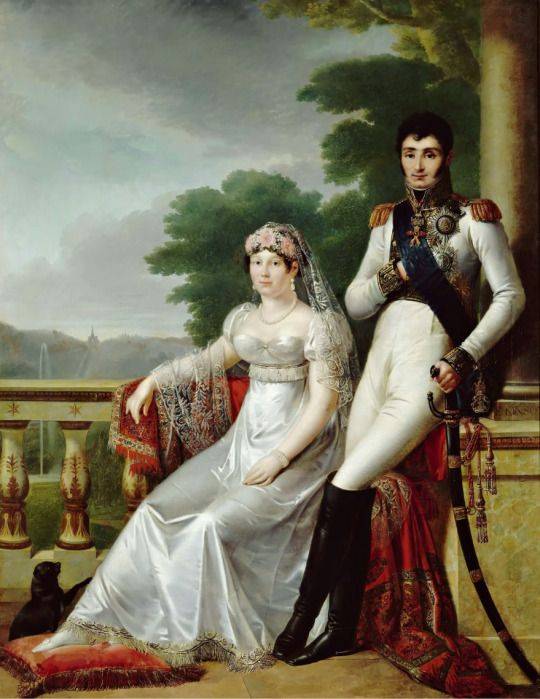
François-Joseph Kinson. Jerome Bonaparte with his wife
Jerome Bonaparte did not have the talents of a statesman, and did not aspire to become one. His kingdom was completely controlled by Napoleon, the instructions that came from Paris were carried out strictly and thoughtlessly. Almost all the revenues of the treasury went to the organization of various holidays, for which the subjects nicknamed Jerome "the merry king." In Russia, he was often unofficially called "King Yerema". In the meantime, Jerome established the Order of the Westphalian Crown, becoming its Grand Master.
In 1812, he initially commanded the VIII Westphalian Corps of the Great Army, but on April 22 he began to command the right wing, which included the V, VII, VIII infantry corps and the IV cavalry corps - up to 78 thousand people with 159 guns. He was ordered to move to Grodno, pursuing parts of the 2nd Western Army of Pyotr Bagration. Jerome acted unsuccessfully, and Napoleon complained:
He handed over command to Davout, which angered Jérôme, who on July 16 arbitrarily left the army and left for Kassel.
Loss of the throne
In the autumn of 1813, having learned about the approach of the detachment of General Chernyshev, he left his capital, but, having received reinforcements, recaptured it three days later. After the battle of Leipzig, Jerome Bonaparte finally left the kingdom - he went to Paris, not forgetting to take the state treasury with him. After the emperor's abdication, he settled in Trieste.
But this was not yet the end of his political and military career. After the return of his brother from the island of Elba (“Hundred Days” of the French emperor), he became a member of the chamber of peers, but his wife and little son were arrested and released only after the repeated abdication of the emperor. Jerome at this time, at the head of the 6th division of the II Infantry Corps, successfully fought at Cartre Bras. Ney reported:
In the battle of Waterloo, Gerome acted less successfully: his division suffered heavy losses during frontal attacks on the positions of the British at Château Hougoumont.
Former king
After the second abdication of Napoleon, Jerome was arrested by his own father-in-law, but was released at the request of his wife, who categorically refused to divorce him. Frederick of Württemberg yielded to his daughter, granting her and son-in-law the titles of princes de Montfort, as well as a small allowance. As a relative of the Dowager Empress Maria Feodorovna of Russia, Catherine also received a "pension" from the Russian treasury.
Accustomed to "living in a big way", Jerome did not spare money, and his family was constantly in debt. All relatives of Napoleon were forbidden to enter France, and until 1847 the family constantly changed their place of residence: for some time they were in Austria, then in Italy, Switzerland and Belgium.
The wife of the hero of the article, Catherine, gave birth to her first child only in 1814. They became a boy named after his father Jerome. I must say that the first-born of the former king, born to his American wife, bore the same name.
In 1820, a daughter, Matilda, was born in the family of Jerome and Catherine, in 1822, another boy, Napoleon Joseph.
In 1835, after the death of Catherine, the financial situation of Jerome and the children deteriorated significantly, as the family lost subsidies from Russia and Württemberg. But in 1847 he was able to return to Paris. Here, after his nephew Louis-Napoleon was elected president of France, he became the director of Les Invalides, and on January 1, 1850, he also became a marshal of France.
For a short time he served as Minister of the Interior and President of the Senate. Moreover, in December 1852, after the coronation of his nephew, Jerome became heir to the French throne, receiving the title of Prince of the Blood and Imperial Highness. He was listed as heir until the birth of the new emperor's son, Napoleon-Eugene.
By the way, in 1852, Jerome Bonaparte, the only one of the brothers, was captured in a photograph that has come down to our time.
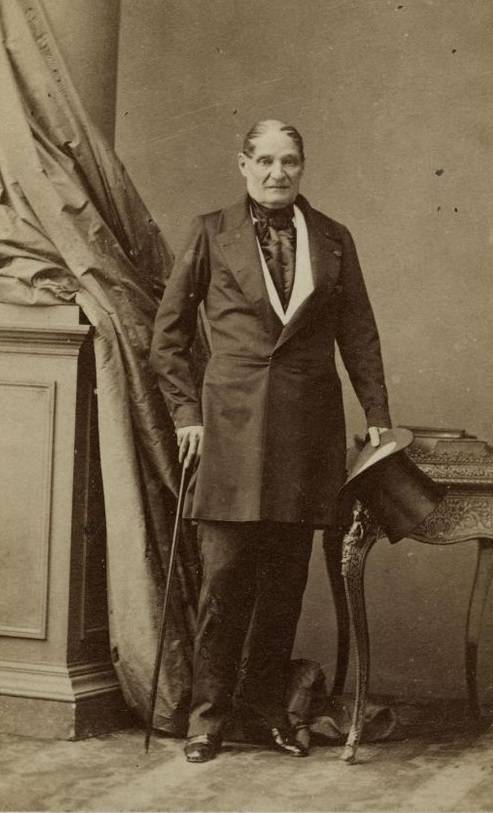
Jérôme Bonaparte, photo 1852
In 1853, the 69-year-old prince married his Italian mistress, the Marquise Giustina Bartolini-Badelli. She was 42 at the time and lived until 1903, dying at the age of 92. Husband, who died in 1860, Giustina survived by as much as 43 years.
Descendants of the "jolly king"
As we remember, the first child of the hero of the article, a boy named Jerome, was born to Elizabeth Patterson in 1805. During Napoleon's lifetime, he was not recognized as a member of his family. During the reign of his cousin, Emperor Napoleon III, he nevertheless visited France and met with his father, but faced the obvious and undisguised hostility of his half-siblings. He did not receive any inheritance after the death of his father.
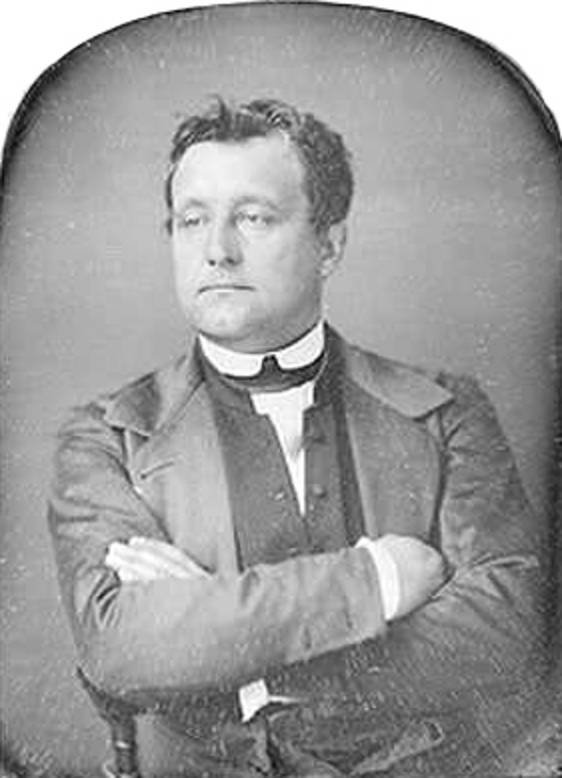
Jerome Napoleon Bonaparte-Patterson
In the United States, Jerome's first-born married Susan May Williams and became the founder of the American branch of the Bonapartes. His son, Charles Joseph Bonaparte (born 1851), was a close associate of President Theodore Roosevelt, US Attorney General, Secretary of the Navy, and US Attorney General. In 1908, on his initiative, the Bureau of Investigation was created, which since 1932 has been called the FBI.
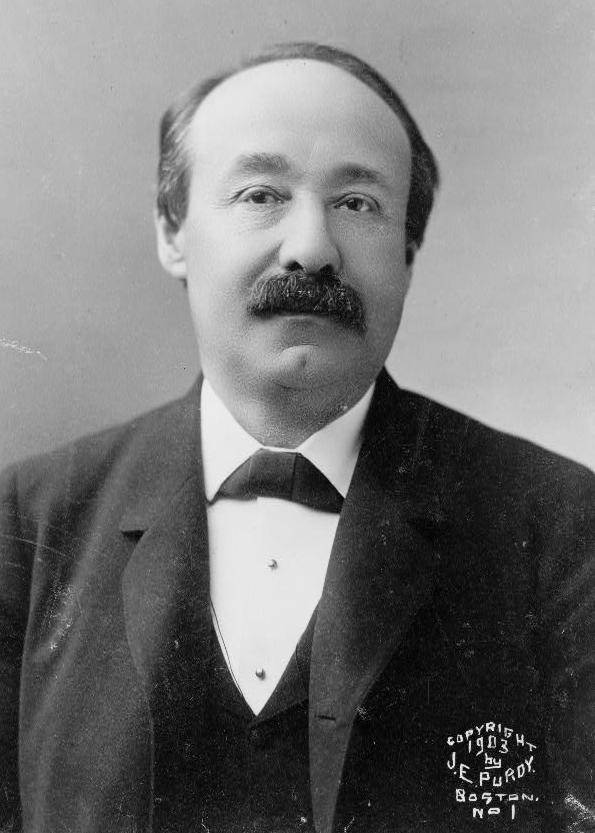
US Attorney General Charles Joseph Bonaparte
The eldest son of Jerome Bonaparte from Catherine of Württemberg, Jerome Napoleon Charles Bonaparte, rose to the rank of colonel in the army of the Kingdom of Württemberg.
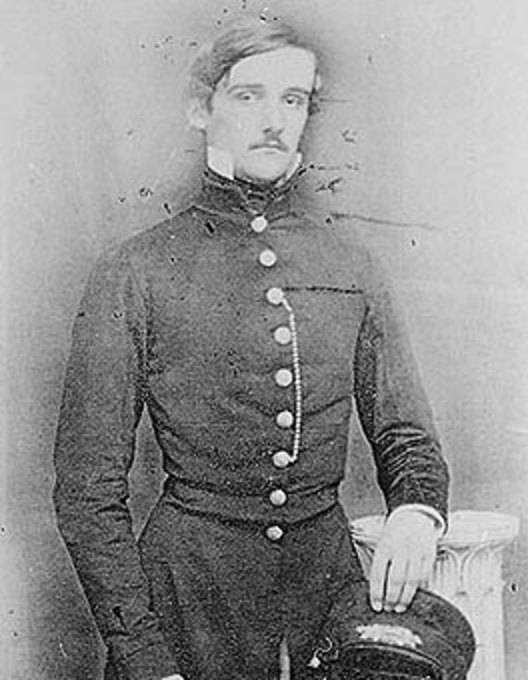
Catherine's younger son, Napoleon Joseph Charles Paul Bonaparte, since 1879 (after the death of "Prince Lulu" - Eugene Louis Napoleon in South Africa) was considered the head of the Bonaparte family and a pretender to the French throne.
But much more interesting is the fate of the only daughter of the "jolly king" - Matilda Letizia Wilhelmina Bonaparte, who, as we remember, then still bore the title of Princess de Montfort, and later will receive the title of French princess.
Niece of Napoleon and great-great-grandson of Nikita Demidov
Mathilde Bonaparte was born in 1820. For some time she was considered the bride of her cousin, the future Emperor Napoleon III, but the engagement was canceled. Countess Eugenia Montijo became the wife of Napoleon III.
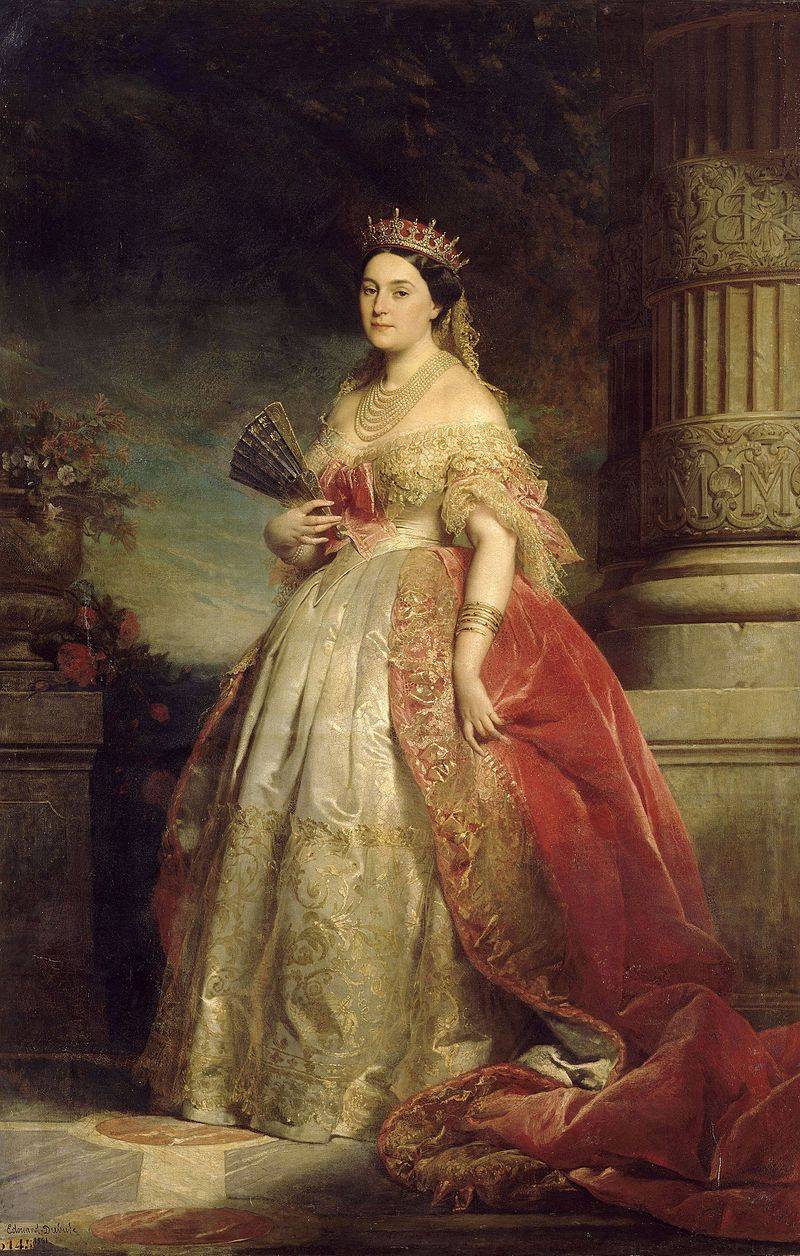
Mathilde Bonaparte in a portrait by Louis-Edouard Dubuf
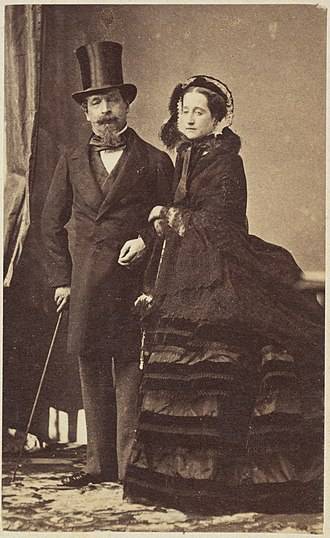
Napoleon III Bonaparte and Empress Eugenie, 1865
During the reign of the former fiancé, she bore the titles of Princess of the French Empire and Imperial Highness. But before that, in 1841, Matilda unexpectedly married Anatoly Nikolaevich Demidov, a descendant of the famous gunsmith, a very eccentric and fabulously rich man who was born in 1812 and was an ardent admirer of Napoleon.
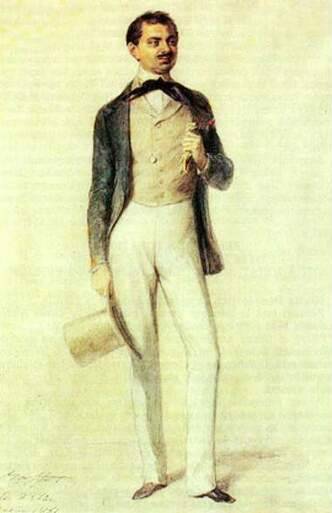
A. Demidov in the portrait of Auguste Raffet
This marriage broke up already in 1845, and during the divorce, the grand-niece of his idol tore off this representative of the Demidov family like sticky.
Anatoly Nikolaevich inherited factories that gave two million net profits per year. Born in Florence, he was educated in France and died in Paris in 1867.
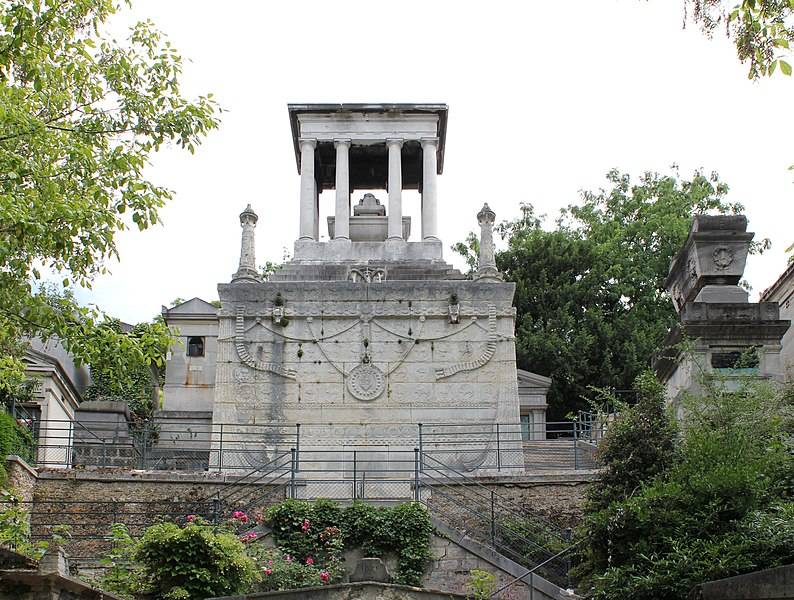
The Demidov family tomb at the Père Lachaise cemetery, Paris
He never bothered to visit the Urals in his entire life, nevertheless, two railway stations still bear his name there - San Donato and Anatolskaya.
Another thing is Florence, where Anatoly built a huge estate with his own railway for the movement of the owner and his guests. There was a theater, a church, a mulberry garden with ponds, and even a silk factory. However, he also did charity work. For example, about 500 thousand rubles were allocated by him for the construction of a hospital in Moscow, 100 thousand for the construction of the Nikolaev Children's Hospital in St. Petersburg, 500 thousand rubles for the construction of a house in St. Petersburg for the care of workers ("Demidov House of Diligence").
In addition, exploration of coal reserves in the Donets Basin was carried out at his expense. He also established the Demidov Prize for the best work in Russian in the amount of 5 thousand rubles. He allocated another 2 rubles to decorate the church of the Demidov Lyceum in Yaroslavl. Finally, by his order, Karl Bryullov painted the painting “The Last Day of Pompeii”. However, in "enlightened Europe" this representative of the Demidov family spent immeasurably more money.
When meeting Matilda Bonaparte, Anatoly Demidov already had a high-born passion - Valentina de Sant-Alde Jonde, Duchess de Dino. However, the magic of the name of Napoleon, who, we recall, was the idol of Anatoly, and the efforts of Jerome Bonaparte, who was hopelessly in debt, did their job. The girl was also not averse to becoming the wife of a Russian millionaire.
Matilda's cousin Louis-Napoleon (the future emperor) was against, who tried to dissuade his sister from marrying a "man", who was just a count. Matilda showed a healthy pragmatism, saying that the "man" is able to buy her half of France. But first, Demidov redeemed the pawned dowry of his bride, paying bills for a total of one million francs.
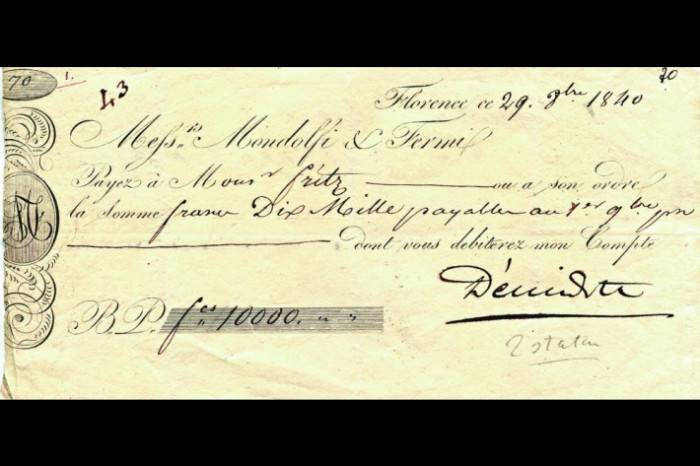
One of the bills of Jerome Bonaparte (for the amount of 10 thousand francs), paid by A. Demidov
But that was only the beginning.
In order for Matilda not to lose her status as a princess, Anatoly had to buy the title of Prince of San Donato, which, by the way, was never recognized in Russia. Further more.
According to the marriage contract, Demidov annually had to allocate a tidy sum of 117 francs: of which 669 went to Matilda, 85 to her friend (!) Madame Redding, 1 to her father, 200 to one of the brothers. At the same time, Matilda very quickly acquired a lover, who was the Dutch Count Alfred Emilien O'Hara von Neuverkerk, a famous womanizer, and also a sculptor.
Matilda wrote to her brother:
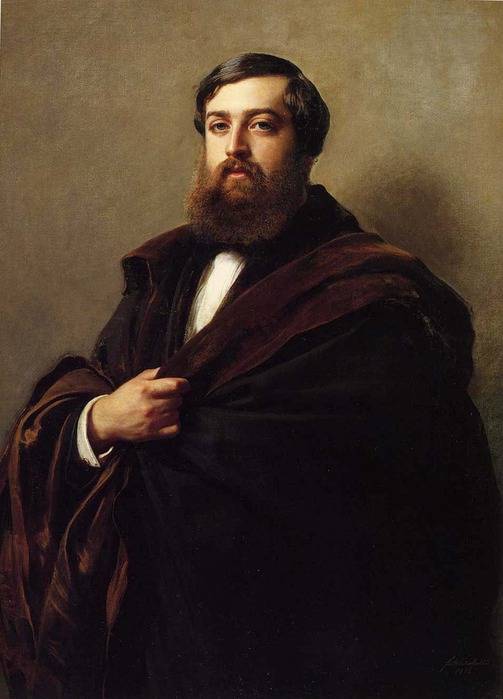
Franz Xaver Winterhalter. Portrait of Alfred Emilien von Nieuverkerk
Anatoly, however, was not without sin himself: between times he resumed relations with the Duchess de Dino. But the rumors about the betrayal of his wife upset him very much. So much so that he dared to declare to Matilda that money for her maintenance would be allocated only if she "behaves like a respectable wife." Matilda, in response, during a ball arranged in honor of her husband's name day, insulted the Duchess de Dino.
Anatoly decided to teach her slaps - his wife publicly called him a cuckold. However, some believe that the "exchange of courtesies" took place even before the ball - in the carriage. They said that this story had a continuation: Anatoly allegedly then whipped his wife in the bedroom. Matilda ran away from home, carefully taking Demidov's diamonds with her. Later, she pawned them in a bank and transferred the received 500 thousand francs to her cousin Louis Napoleon, who, with the help of this money, managed to win the presidential elections in France.
But it will be in November 1848, and now Matilda went to St. Petersburg to complain to the Russian emperor, who was her mother's cousin.
Nicholas I sided with Napoleon's niece, ordering Demidov to pay not 117, but 669 francs a year for her maintenance. And these payments continued until 200: after the death of Anatoly, this duty fell on his nephew and heir, Pavel Demidov.
In general, it was not a descendant of Russian peasants to sit down to play at the same table with "noble" European cheats.
Information